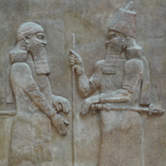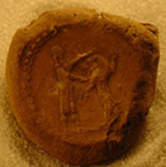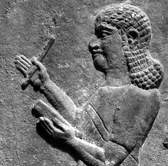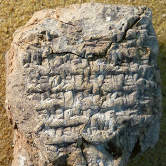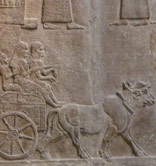Governors
Running the empire: Assyrian governance. The Assyrian kings were supported by administrative, military and cultural elites who were involved in building and running the Assyrian empire at every level. |
|
The King's Road - the imperial communication network. The Neo-Assyrian state maintained a privileged express post service that relied on an innovative relay system and the endurance and resilience of mules. |
|
The royal seal: a sign of the king's trust and a manifestation of royal authority. Whoever held a copy of the Assyrian royal seal was acting as the king's representative and his commands could not be refused. |
|
The Palace Scribe: running the state archives of Assyria. Assyrian palaces teemed with scribes but there was only ever one 'Palace Scribe', and he was one of the most influential men in the state. |
|
The deputy system: backbone of Assyrian governance. Deputies could replace their superiors whenever the need arose, providing the Assyrian administrative system with flexibility and resilience. |
|
Mass deportation: the Assyrian resettlement policy. The practice of resettling population groups was a key constituent of the structural set up of the Assyrian Empire. |
Content last modified: 9 Jul 2012.
Karen Radner
Karen Radner, 'Governors', Assyrian empire builders, University College London, 2012 [http://www.ucl.ac.uk/sargon/essentials/governors/]
